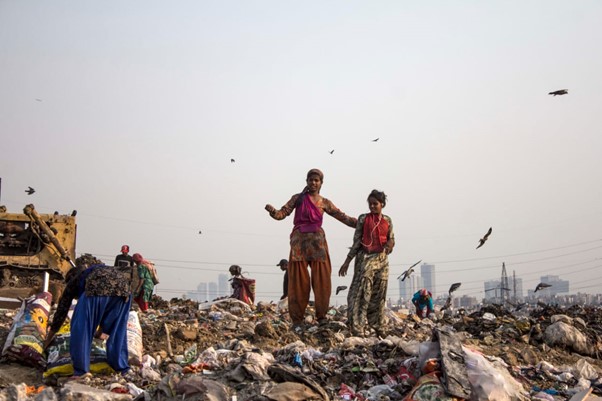Giving Youth a Chance to Tackle the Waste Problem of India
You’ve seen 15-year-old volunteering for clean-up drives on a Sunday wearing a cap, gloves, and masks, holding a stick and a garbage bag and you’ve probably also seen a group of children chatting near the trash bin or on the train station searching for something they consider a valuable resource. Does our conscience hit us differently in these different scenarios?
The Youth across the country today are acting as the driving force for change; be it in the climate movement, plastic collection drives, tree plantations, or mobilization to solve the garbage crisis. But are clean-up drives, tree plantations a solution to the waste crisis in India? There has been absolute neglect and poor priority in the management of waste resulting in huge mountains of trash polluting air, water, and soil. Of 142 thousand tons of waste generated in 2017, only 29 thousand tons were treated, the remaining waste went to the landfill. This shows the behaviour of various stakeholders towards solid waste management and the lack of interest among the citizens to segregate their own trash at the source. India’s youth can be trusted to show their due responsibility given a platform to set agendas for their neighbourhood. At this alarming rate of waste production, in the next 30 years, the consequences are to be borne by today’s young people and the children who are already suffering the most from the climate crisis and pollution. Waste if treated properly could be utilized as a potential source of energy yet being the largest waste producer, India still depends on coal as its main source of energy, worsening the effects of climate crisis and pollution. Poor management of waste whether putting waste out of our site or sight leads to numerous health hazards and adds to the climate crisis. The waste management process starts with an individual at home be it sustainable consumption or segregation. One should be careful while disposing of wastes as we do not know where our waste goes.
India being one of the youngest populations holds hope in its youth to accelerate its vision of sustainable development. Many children and youth are ready to bring the change by rejecting the use of single-use plastics and are vocal about the crisis. When youth and children are aware, they play an active role in their families to make them understand and act as responsible citizens. More support from CSOs and Government for young innovators and entrepreneurs in the green economy space will enable young people to implement their ideas, thereby ensuring a step towards an environment-friendly economy and society. This situation suggests investment in young people as they can play a major role if sensitized at an early age to segregate waste at the source and for sustainable consumption. We must also push for reforms in education policies to introduce waste management as part of the curriculum in education in schools, something that is already happening in many countries worldwide.
Contributed by: Harsh Gupta



